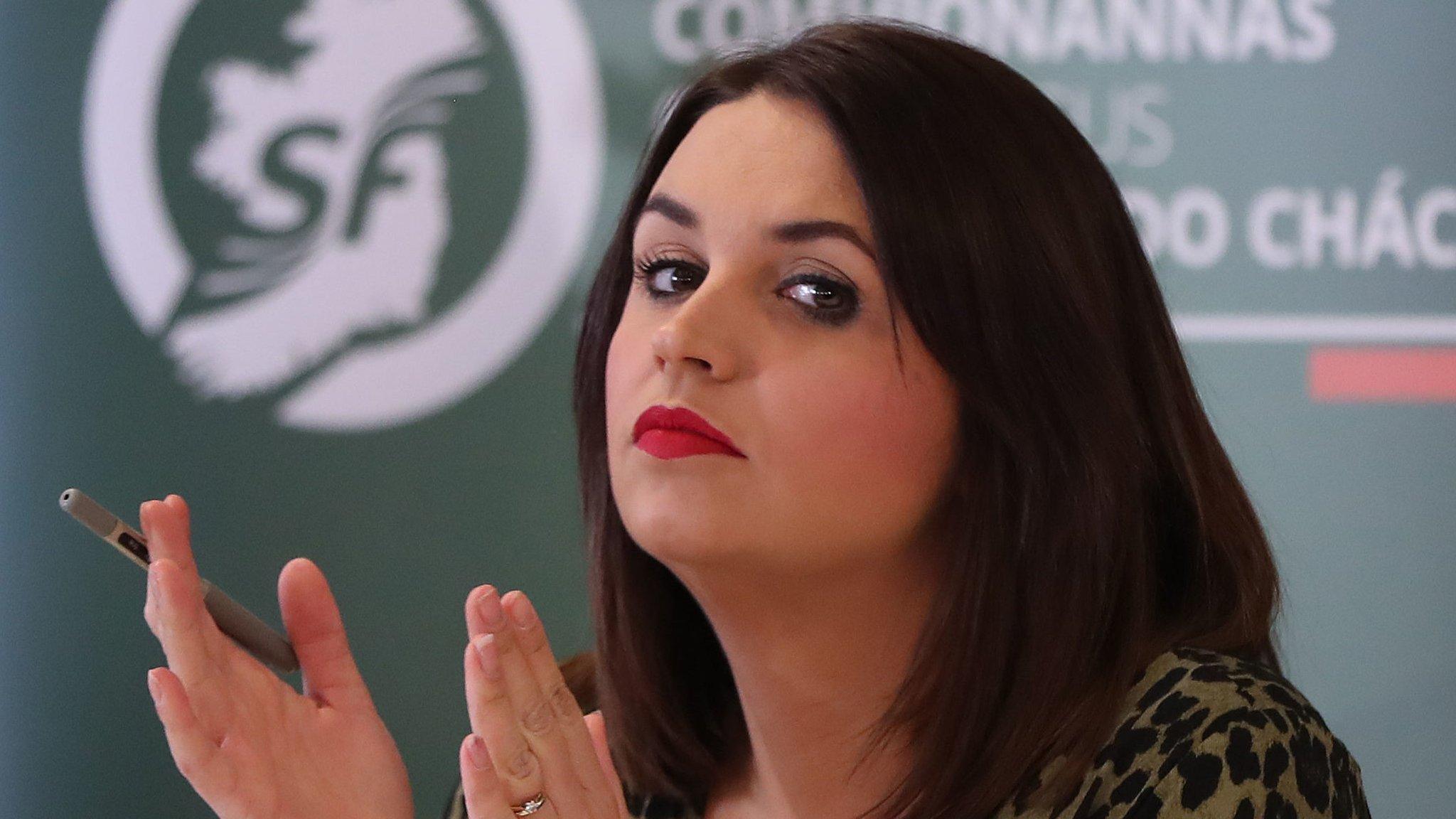Northern Ireland election results: DUP's Brexit influence is gone
- Published
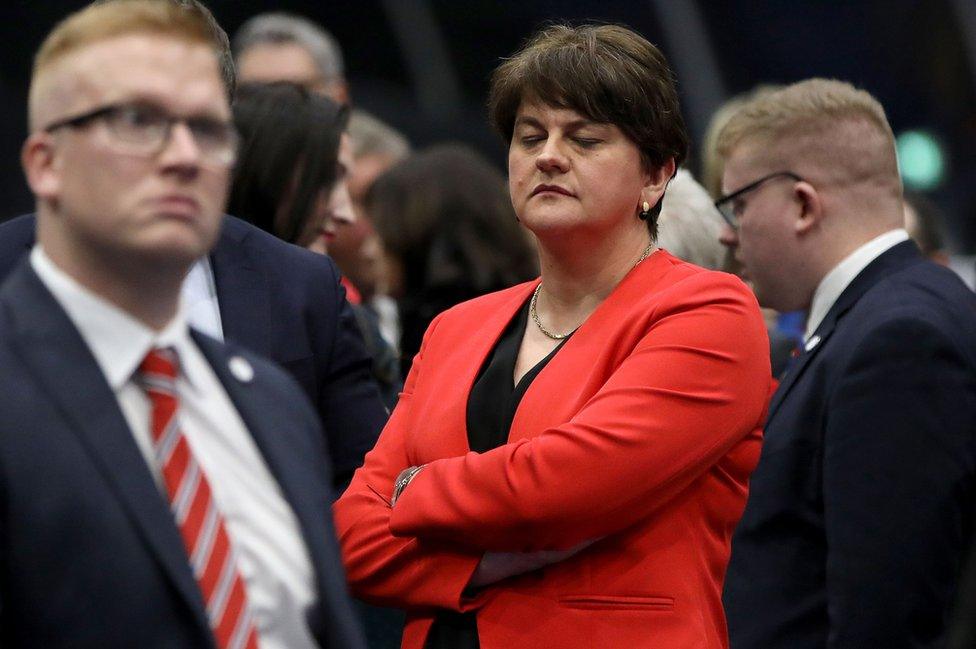
Arlene Foster's DUP lost two of its MPs in Belfast, including its deputy leader Nigel Dodds
A comfortable majority for Boris Johnson means his Brexit will happen.
That will have profound implications for Northern Ireland.
It will likely mean a new "Irish Sea border" in operation in little over a year's time.
Mr Johnson is expected to bring his withdrawal deal back to Parliament next week, beginning a process that will take the UK out of the EU by 31 January.
The UK will then enter a transition period, effectively a standstill arrangement where EU rules still apply.
That transition could continue until the end of 2022 but the prime minister is adamant he will only allow it to last until the end of 2020.
So during that year the UK and EU will attempt to negotiate a long-term trade deal.
In parallel the two sides will also have to work out how the Northern Ireland part of the withdrawal deal will work.
They will effectively be designing an Irish Sea border.
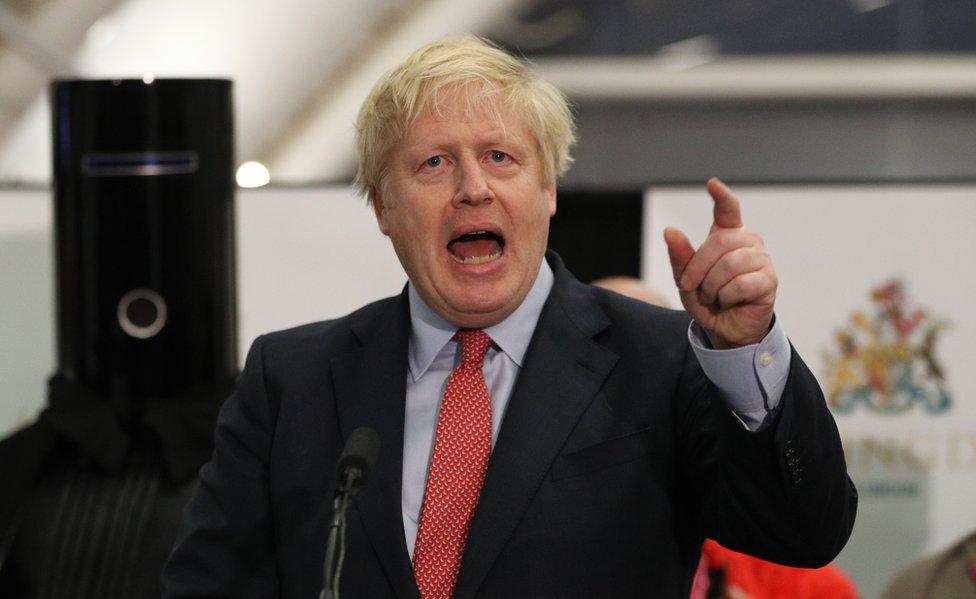
The Conservative Party's majority means Boris Johnson's Brexit will happen
And there should be no doubt that the current deal will mean new checks and controls on goods moving from Great Britain to Northern Ireland.
The withdrawal agreement means Northern Ireland will continue to follow EU rules on manufactured goods and food products - the rest of the UK will not.
That will mean some goods will have to be checked as they move from Great Britain into Northern Ireland.
The prime minister attempted to minimise - or even outright deny - that reality throughout the election campaign.
That prompted a slightly exasperated intervention from Irish Foreign Minister Simon Coveney, who said "many hours" had been spent discussing, negotiating and explaining it.
Allow X content?
This article contains content provided by X. We ask for your permission before anything is loaded, as they may be using cookies and other technologies. You may want to read X’s cookie policy, external and privacy policy, external before accepting. To view this content choose ‘accept and continue’.
The nature and extent of these checks will have to be thrashed out by an EU and UK body known as the Joint Committee, which will oversee the whole withdrawal agreement.
The detailed work will happen among officials in two other bodies known as the Specialised Committee and the Joint Consultative Working Group.
It is by no means guaranteed that Northern Ireland officials or representatives will sit on these bodies - the deal only specifies members from the EU and UK.
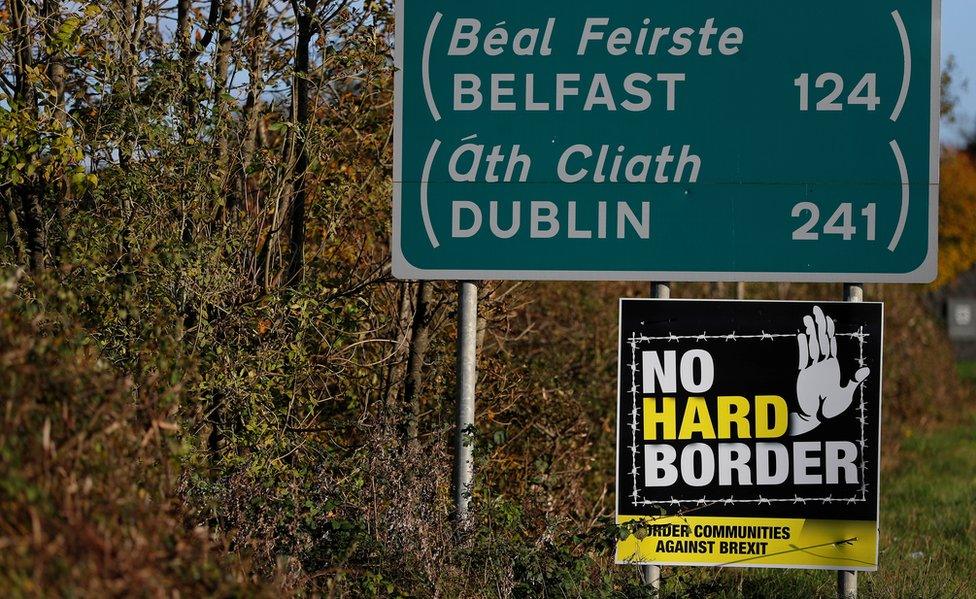
How Northern Ireland unionists react to the election result will be closely watched in London and Dublin
However, Northern Ireland politicians and business groups will be pushing hard for maximum influence.
In Parliament, the Democratic Unionist Party's (DUP) influence on Brexit is gone.
The party attempted to put a brave face on it, suggesting the prime minister might yet need its help or that they could secure changes to his deal that are more to the DUP's liking.
That got short shrift from Theresa May's former Brexit advisor Raoul Ruparel.
He tweeted: "We should all take a moment to appreciate just how badly the DUP have played the last year... they now have a deal they hate and are powerless in Parliament."

WHO WON, WHERE? All the results in full, external
MAPS AND CHARTS: Analysis in maps and charts, external
AT A GLANCE: A quick guide to election night

How the wider unionist community reacts to that loss of influence, alongside an Irish Sea border, will be a source of concern in London and Dublin.
Dáithí O'Ceallaigh, the Republic of Ireland's former ambassador to the UK, has drawn an explicit parallel with the Anglo-Irish Agreement in 1985.
That agreement, which gave the Irish government a formal consultative role in Northern Ireland, left unionists and loyalists feeling betrayed and isolated.
There was huge, sometimes violent, opposition.
Mr O'Ceallaigh has warned that fresh unionist concerns "cannot be ignored or left to fester".
- Published13 December 2019
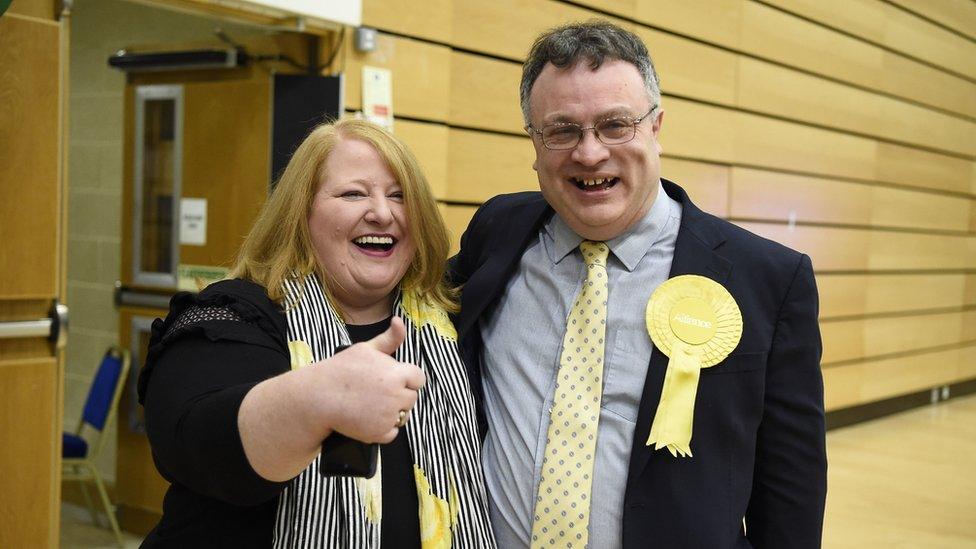
- Published13 December 2019
